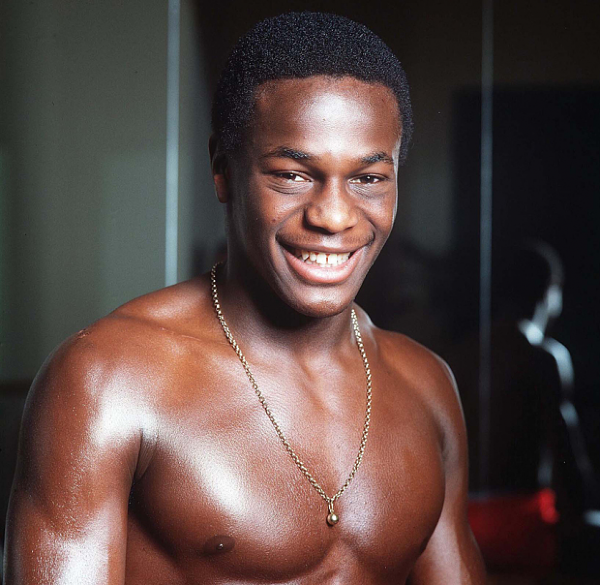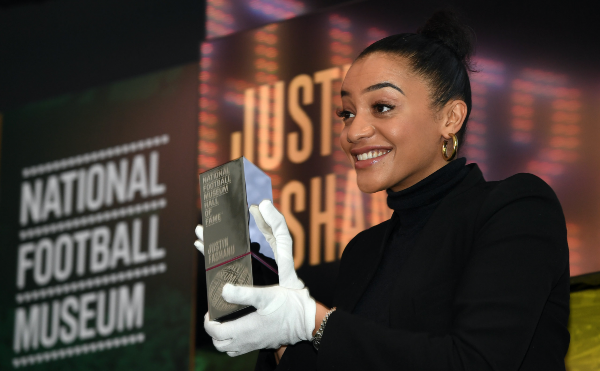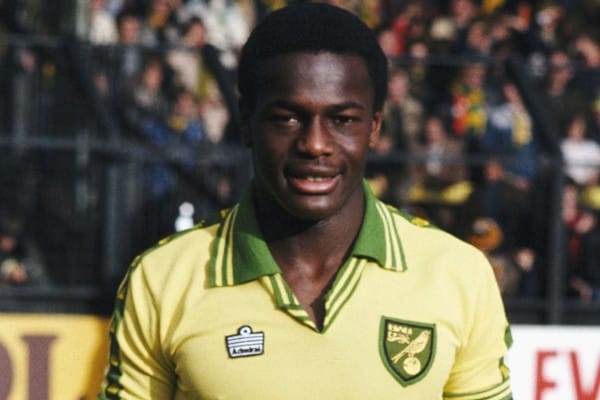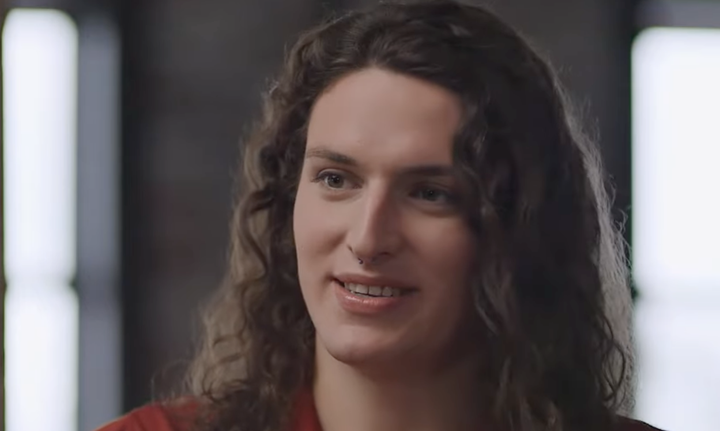Remembering Justin Fashanu: the world’s first openly gay footballer
On Wednesday, February 19, 2020, former Norwich and Nottingham Forest striker Justin Fashanu was inducted into the National Football Museum‘s Hall of Fame. As part of the LGBT+ History Month celebrations, the event also coincided with what would have been his 59th birthday. Fashanu was Britain’s fir

On Wednesday, February 19, 2020, former Norwich and Nottingham Forest striker Justin Fashanu was inducted into the National Football Museum‘s Hall of Fame. As part of the LGBT+ History Month celebrations, the event also coincided with what would have been his 59th birthday.
Fashanu was Britain’s first £1million black footballer and won the BBC’s Goal Of The Season award for a memorable game against Liverpool in 1980. He was also the first male English professional footballer to come out as gay while still playing high level competitive football in 1990. Only one top-level player – Jake Daniels – has come out during their career since 1990. Thirty-five years ago. So why didn’t Fashanu’s landmark decision pave the way for others to follow suit?

Fashanu’s niece, Amal, has been instrumental in campaigning against LGBTQ+ discrimination in football. She helped set up the Justin Fashanu Foundation and both produced and presented the BBC Three documentary Britain’s Gay Footballers in 2012. Of her uncle’s legacy, she said in February: “I don’t understand, even today, how Justin did it – he’s one of the bravest men I’ve ever come across.”
She accepted the Hall of Fame Award on his behalf at the National Football Museum in Manchester and said of the landmark moment: “He’s here now [in the Hall of Fame], you guys have acknowledged him, we all respect him, he’s been given the position he deserves, and for me, that’s all I’ve ever wanted for Justin.” In his day, however, Fashanu had no such advocate. As recently as 2012, his brother, legendary player John Fashanu, father of Amal, said: “My brother wasn’t gay he was just an attention seeker.”
In 1990 the media was firmly gripped in its AIDS hysteria and Justin Fashanu told his coming out story to The Sun. They in turn typically sensationalised the narrative citing scandalous gay affairs with sitting MPs, stories Fashanu stated two years later to have been untrue or at least exaggerated. And although he didn’t come out publicly until 1990, it was known throughout the 1980s by professional football clubs that Fashanu was gay. He had little success as a player after 1981 and his transfer fee of £1million from Norwich City to Nottingham Forest was often described by pundits as a waste of money and poor investment.
One week after The Sun broke his exclusive, brother John gave an interview in The Voice criticising his brother’s move and describing Justin as “an outcast”.
Justin was also the subject of an early internet campaign in 1996 when the BBC opened its poll for the Sports Personality of the Year award to email votes for the first time. The online campaign was organised among supporters in an attempt to enable him to win the title but citing the campaign as unfair and ‘against the rules’ the BBC production team excluded votes for Fashanu from the process. He didn’t win.

In 1998 Fashanu was questioned by police in Maryland, USA when a 17-year-old boy accused him of a sexual assault. Although Fashanu stated that the sex had been consensual, he was 20 years older than his accuser and at that time in Maryland, homosexual acts were illegal whether consensual or not. Fashanu had returned to the UK when an arrest warrant was issued in Howard County and although no extradition proceedings were sought, in May of that year Fashanu was found hanged in a garage.
Fashanu left a suicide note that stated although the sex had been consensual, he didn’t believe he would receive a fair trial on account of his homosexuality: “I realised that I had already been presumed guilty. I do not want to give any more embarrassment to my friends and family.”
An inquest held in London heard evidence from a Scotland Yard detective that the US made no request for Fashanu to be found or arrested, and the Coroner stated as a matter of court record that he was not a wanted man at the time he hanged himself. The inquest recorded a verdict of suicide.
Speaking to The Independent in 2006, Peter Clayton, then chief executive of the Middlesex FA and a long-serving FA councillor, said on the issue: “The main difficulty at the moment is that players are assets. They have a market value, which clubs might feel could be affected [by coming out]. I think there’s a concern too about the wider price, in terms of negative effects on business. This is my personal view, but there are clubs who think it’s in their interests to counsel players not to come out.”
After coming out, Fashanu was vilified by the press and football going public alike. He was taunted in the tabloids and on the terraces for years. He admitted that he hadn’t been fully prepared for the backlash from both his cultural community and of football, not to mention his family. He said his career has suffered “heavy damage” and although fully fit, no club offered him a full-time contract after the story broke.
Support independent LGBTQ+ journalism
Scene was founded in Brighton in 1993, at a time when news stories about Pride protests were considered radical. Since then, Scene has remained proudly independent, building a platform for queer voices. Every subscription helps us to report on the stories that matter to LGBTQ+ people across the UK and beyond.
Your support funds our journalists and contributes to Pride Community Foundation’s grant-making and policy work.
Subscribe today




Comments ()